Get Free Guides To Ascension & Global Consciousness
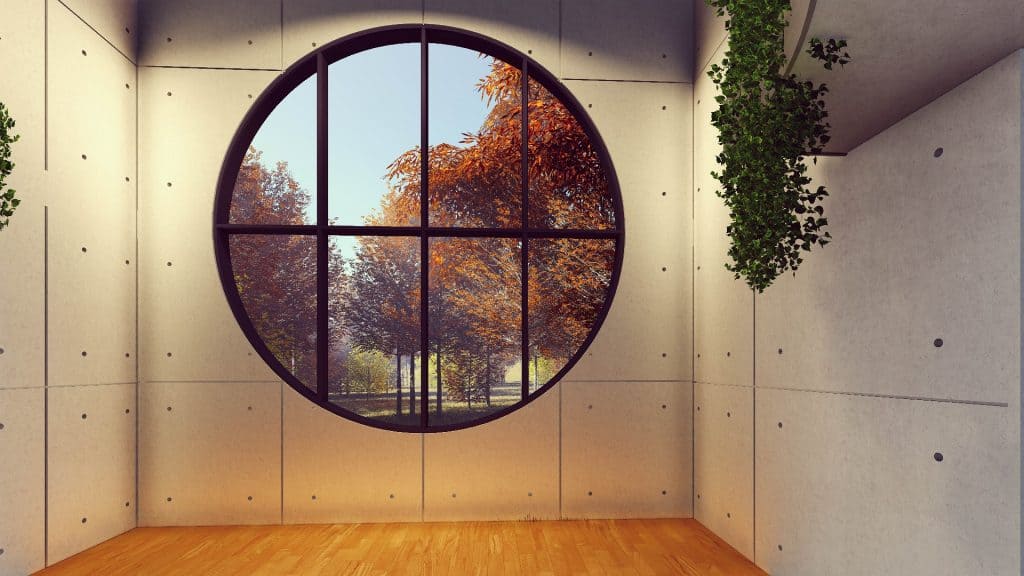
Recently we taught a channeled course over a four week period and one of the topics was Purification. In fact, we kicked off the first class with it. Why? Because that’s how important it is to a spiritual practice and our overall well-being, but what does it mean?
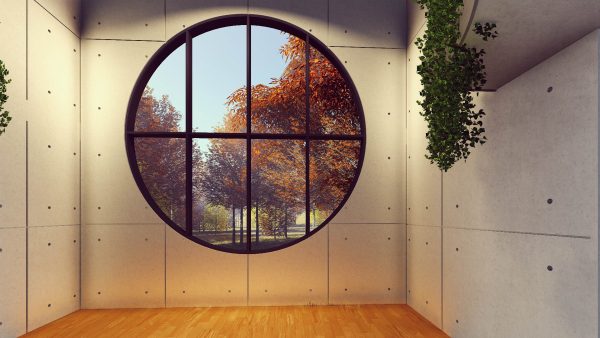
If you’ve been on a spiritual path for awhile, chances are you’ve gone deep into the teachings of ancient spiritual teachers and ascended masters and if you have, you’ll find that Purification is mentioned in nearly every practice, regardless of culture or belief system.
It is often connected to purification of ‘oneself’ first and foremost, which includes the inner and outer systems, i.e., meditation, purification rituals, sage clearing, bathing, diet, connection to food and of course exercise, which may include an energetic form of martial arts such as Qigong or Tai Chi.
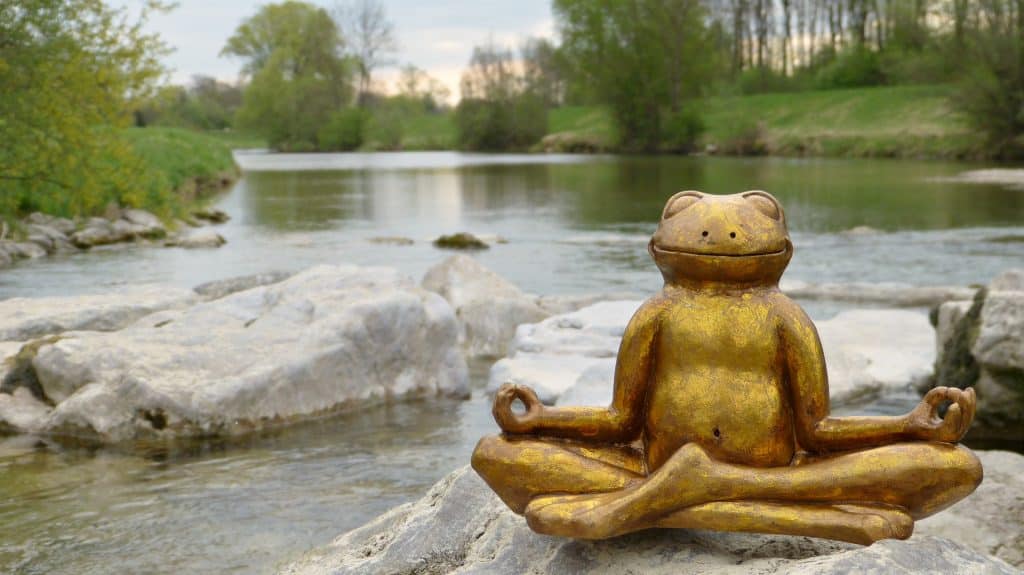
Across cultures, purifying one’s space — especially where you spend most of your time — has also been passed down for thousands of years, regardless of whether you hailed from the colder climates of Scandinavia or Alaska or lived on an island in the South Pacific.
You see, it’s part of our innate nature to desire to be among harmony. What brings ‘ease’ for one person is different for another, so of course this is objective to each individual. That said, research has shown time and time again that certain colors, objects, and even where you place things in a living space can ‘upset’ that harmony.
For example, warm blues and greens are harmonizing and soothing colors whereas bright reds and oranges are stimulating colors and why many fast food restaurants use those colors in their logos and interior decor — essentially, to turn people over more frequently.

When I was in the advertising industry in the nineties, we used these commonly known factors to design campaigns that would either soothe the soul (wellness industry) or push people to move (young adventure seekers). You get the idea.
The ancient tradition of feng shui teaches us a lot about the sacred-ness of our living space. I’ve read dozens of books, implementing much of feng shui’s core principles over the past twenty years to create harmony in my home — Kingston is one of my favorite authors on the topic.
“The universe shows us in every way it can provide everything we need to know for our journey through life. The natural progression of purifying the energy in your home is to make all your life sacred, so that everything has meaning and a purpose. You start with your home and then you’ll want to go further.
Space clearing has to do with raising levels of consciousness. By cleansing your atmospheres, you create a sacredness around you rather than just living at a mundane level. What we’ve lost in the West is the specialness of things. We just move into a new house with no respect for the land or the building or each other. We’ve lost the sacredness of life.” — Karen Kingston, Creating Sacred Space with Feng Shui
I’ve always connected to Feng Shui because it follows eastern philosophy which is all about harmony and balance. And, if you’ve been to Japan, you know that both home and work environments are built with nature in mind, meaning that nature is literally integrated into spaces. Once you turn your home into a sacred space, as Kingston so rightfully suggests, you’ll want to do the same with other spaces as well.
When it comes right down to it, feng shui is much more than just ‘space clearing’ — it is purposeful placing of things in your environment. As every artist knows who changes things on a canvas countless times before they finish a painting, there is an innate knowing when a space (or a piece of canvas) feels good.
You may have read about purification across cultures. Some practice these ancient traditions today more than others. In my travels, I have experienced many of them having been to more than 90 countries around the world, and almost all of it was a very limited budget. When you travel on budget, you don’t have the privilege to always stay in a clean space and certainly not one we’d define as ‘luxury’ in the west. Yet, there were countless places where I stayed for roughly $10-20 a night that were designed with harmony in mind — aka, simple, elegant, non-cluttered, serene colors on the walls and windows or doors facing nature, such as a body of water or a mountain.
Cleanliness and organization has always been important to me for as long as I can remember, so where a space didn’t have one or either, especially during my travels, I would do whatever it took to create that sense of harmony and cleanliness using whatever I had at my disposal.
For example, in my kibbutz ‘room’ in Israel, I brought in plants and stones, found materials to drape along doors and used berries and other natural ingredients to stain wood and the walls – yes, really. I did the same in my office when I was working in corporate life. Out of 500 employees, my office was the only one with a Turkish rug on the floor, paintings on the wall and pottery scattered about — I also had my own tea kettle which meant that other employees would visit often. My sacred office space had become a retreat center for those who needed to get things off their chest in an environment which exuded warmth. If people needed to talk, my office was often their “go to” over the HR department or their boss.
Messy and cluttered living spaces are known to create anxiety, depression, a sense of hopelessness and other negative feelings. A Princeton University study discovered that a cluttered and messy environment can make you less productive and less likely to be able to focus on a task at hand. I’m sure you’ve heard the age-ole statements: a messy home equates to a messy mind or cleanliness is next to Godliness. When you live in a clean space, bottom line: you can think more clearly and sense more harmony, even if you can’t pinpoint why. There have even been reports that show that people with clean houses are healthier than those with unclean and/or messy homes.
De-cluttering and organizing space is one thing but what about actual cleaning. Luckily, most of my roommates and boyfriends over the years leaned towards clean and clutter-free and for the few who didn’t? I eventually moved because my system ‘felt off’ although back then, I was too young to understand the connection.
Buddhism: Purification is an important part of the Buddhist rituals, especially among Theravada and Mahayana Buddhism although they vary from tradition to tradition. In addition to ‘space purification’, they focus on purification of one’s moral and character (kleśas such as anger, ignorance and lust). 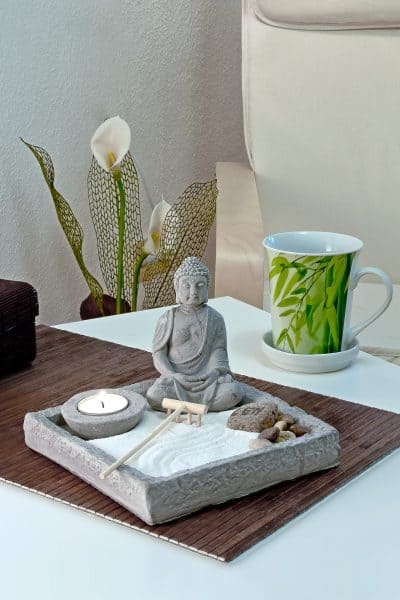
Shintoism: We love Japan and if you’ve ever experienced a Japanese toilet, you know how important cleanliness is to the Japanese. Not only are their spaces ultra-clean (Scandinavia, Singapore and Switzerland are also high on this list based on my own personal experiences), but nature is built into many architectural designs.
They also do ritualistic bathing to spiritually and physically cleanse yourself before entering sacred spaces such as a shrine.
Judaism: Washing is important to the Jews as well, from simple gestures to washing your hands to full immersion at times. While many of these purification practices may not be done regularly in the west anymore, Haredi Jews traditionally immerse themselves before a Shabbat and many Hasidic Jews will do the same before taking part in daily prayer.
Vedic Traditions: some of these include ‘cleansing’ space with rituals like burning essential oils, lighting Sandalwood incense (or another cleansing fragrance used in ancient times), and even tongue scraping according to this Chopra article on 7 Vedic ways to purify you and your home.
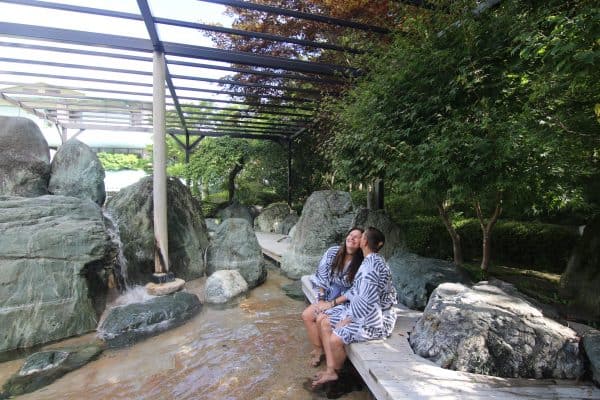
This is far from an exhaustive list of how and where purification is used in spiritual traditions for oneself and one’s space but the examples serve to show that it has been highly important across time.
Mention the word clean to anyone and if you’re like me and have lived with many over the decades (I certainly have, including people’s homes in at least a dozen countries), you’ll know that the word clean is ‘objective.’ What is considered clean to one person isn’t to another and as we all know, there is no ‘right’ or ‘wrong’ — there just is.
Truth be told, if I could have my home cleaned once a week, I’d be thrilled although practically speaking, its tough to manage even without little kids running around. My grandmother always had a clean and I’d add, harmonious home and we often hosted because people felt good there.
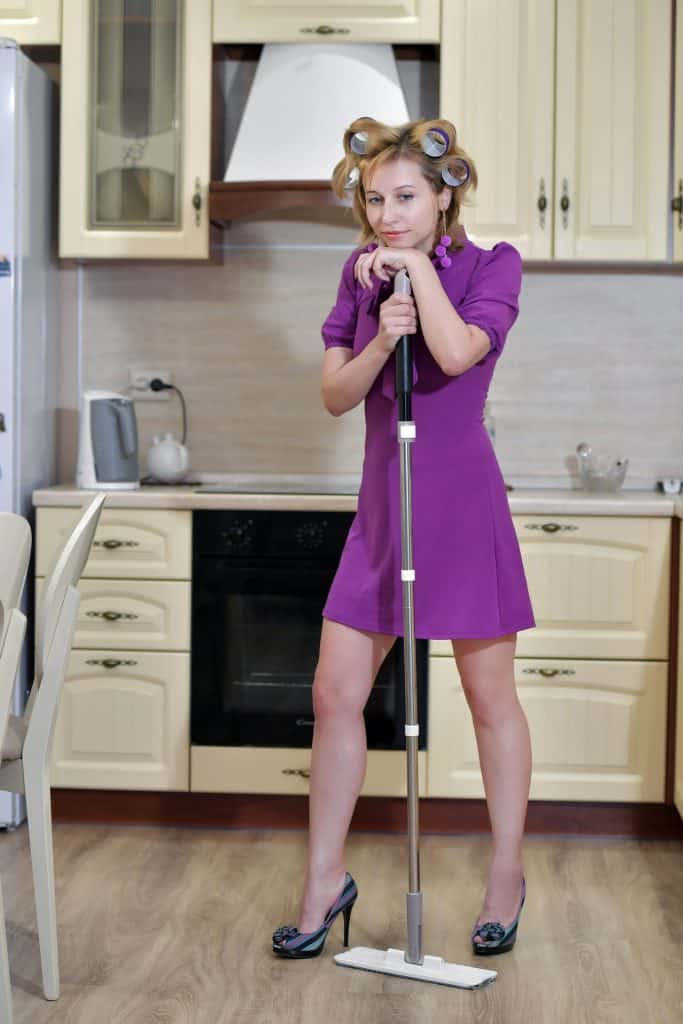 My Aunt Jo also held cleanliness dear and near and despite raising five boys, her home was always orderly….and clean. As kids, we played on the floor often and I always noticed the marks of a recently run vacuum cleaner. Plus, the air always smelled good.
My Aunt Jo also held cleanliness dear and near and despite raising five boys, her home was always orderly….and clean. As kids, we played on the floor often and I always noticed the marks of a recently run vacuum cleaner. Plus, the air always smelled good.
It’s certainly no longer the 1960’s nor are we fed “perfect housewife” mass consciousness advertising anymore. It’s a very different world, and with more women working than ever before (and many have even taken on the role as the breadwinner as well), cleaning the house may get shoved aside in the modern world in ways that it perhaps didn’t one and two generations ago.
Aside from feeling better in a cleanly kept house with less dust and germs, the air is cleaner. Anyone who has used an air purifier for awhile knows this — check the filters every couple of weeks and see what gets trapped.
For those of you who live in California and are currently dealing with the fires, you may suddenly be learning whether you’re sensitive to clean air or not. It’s never been more prevalent in my lifetime — wildfires or not — as we have been forced to spend more time indoors since the coronavirus took the world by storm.
We have also all have grown accustomed to wearing masks when we walk into stores, supermarkets, airplanes and restaurants.

If you’ve ever been to China, you’ll have experienced a different reality as well. Not all air is the same. And, when you don’t clean your home regularly, dust builds up but because you can’t see it shouting at you like you can a messy room with toys or clothes scattered about, you simply put it on the back burner, ‘thinking’ that your space is actually clean.
In the real world, I try to clean twice a month (every other week), which seems to fall into the average, at least in the United States. I ran a test experiment recently and learned that I wasn’t alone. Note: my definition of regular cleaning is cleaning the bathrooms, kitchen sink and counters, dusting and vacuuming the floors, so nothing extreme or out of the ordinary.
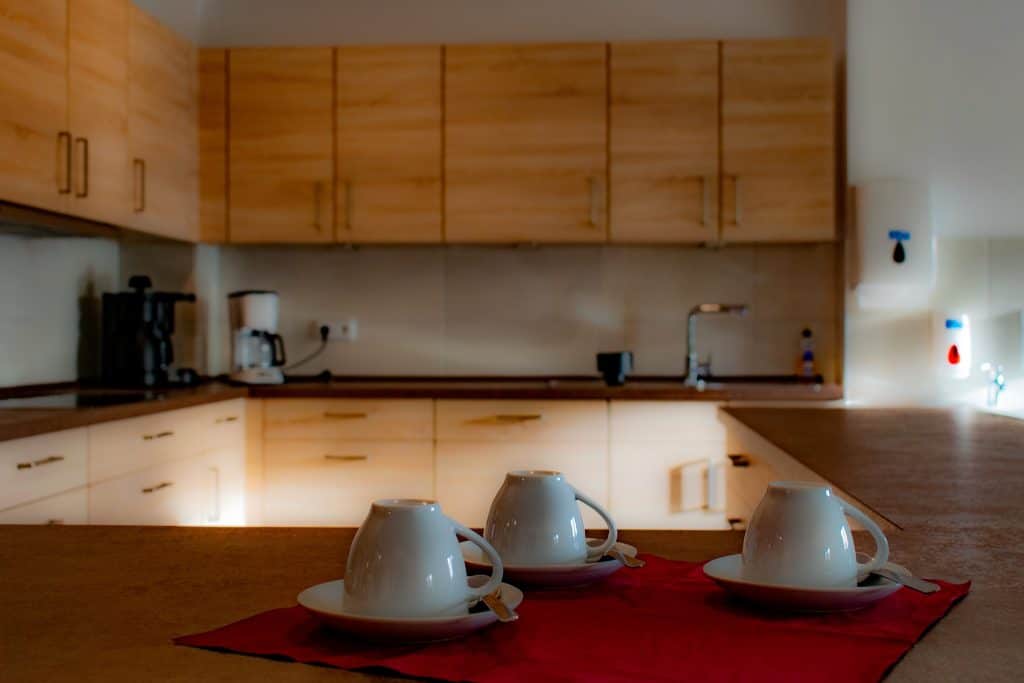
I grew up in a home that committed to what my parents called a “deep cleaning” twice a year – in the spring and fall, which included things like washing windows, washing bed quilts or blankets, wiping down cupboards which may have accumulated crumbs and cleaning the fridge. And, airing out pillows.
As I get older, a clean home seems to be more important than ever and likely because I spend more time in it than I did in my twenties and thirties. Quite frankly, there’s nothing more inviting than a comfy recently made bed that you know is clean. After all, your body is going to cosy up in it after all and your face — mouth and nose — will be hitting that pillow for 6-8 hours every single night. People simply don’t realize what can ‘live, linger and grow’ on sheets and on bed mattresses when left unattended.

According to WebMD, “dust mites like to eat dead skin from pets and humans” and according to EHSO.com, “nearly 100,000 mites can live in one square yard of carpet and a typical used mattress can host anywhere from 100,000 to 10 million mites.”

Also as we age, we may become more sensitive to things like mold and dust mites.
Both of these things are so microscopic that they’re invisible to the naked eye. After reading dozens of pages of research and articles and watching several videos, I learned that depression and anxiety can be connected to living in an unclean or orderly home, but most of the time we’re not aware of it, largely out of habit and because people don’t really talk about it. For example, you may not even think to check your heating ducts however they often get clogged with dust and debris over time. Regular house cleaning certainly doesn’t include checking heating ducts.
Even though I never truly suffered from seasonal allergies the way many of my friends over the years have, dust builds up faster than most realize and circulate in the air, triggering allergies and other respiratory issues.
I represented a few air quality start-up clients over the years as a publicist and the things that I learned about unknown dirty air among us was astounding. I’ll spare you the details but suffice to say that the air quality in the majority of homes and buildings (in both the east and the west) was far from the so called safety standards.
“Dust mites (and their excrement) are responsible for the majority of year-round allergy problems in the bedroom. They live in soft surfaces, and dust, and come out to eat the skin cells and oils we all shed throughout the day.” — Apartment Therapy
And, what about mold? The number of people I know who are increasingly affected by mold issues is on the rise — a half a dozen in the area where I live alone have had to vacate over the past few years because of it.
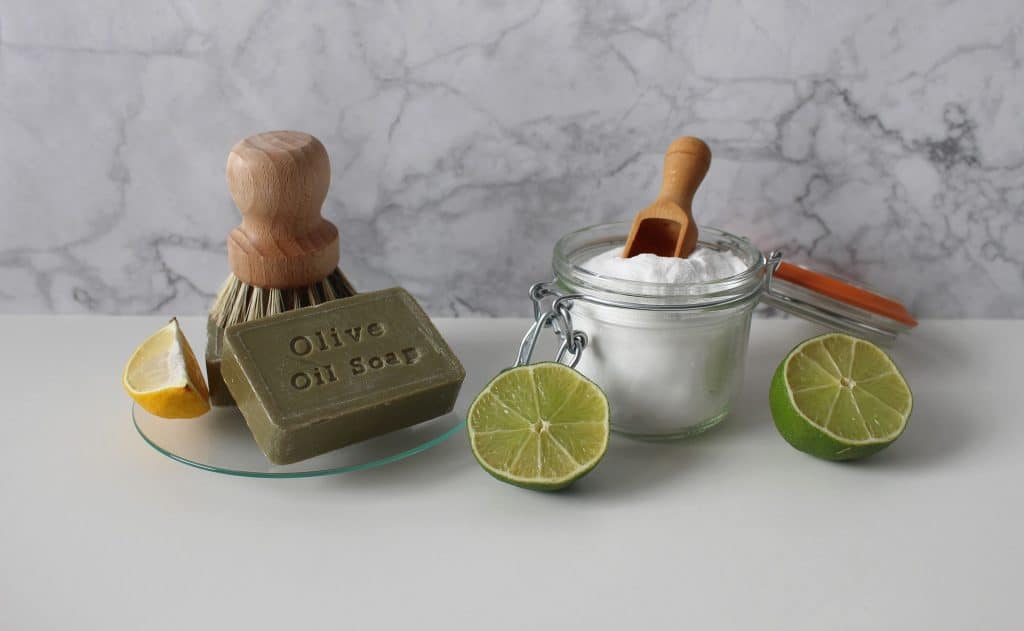 Does regular house cleaning including scrubbing down tiles in the shower? It should of course, but given that we all lead busy lives, chances are that those tiles likely take a back seat and perhaps only get scrubbed down every few months. Unfortunately, stats show that unless you scrub your tile, mold will build up, and often it’s naked to the human eye until it’s too late.
Does regular house cleaning including scrubbing down tiles in the shower? It should of course, but given that we all lead busy lives, chances are that those tiles likely take a back seat and perhaps only get scrubbed down every few months. Unfortunately, stats show that unless you scrub your tile, mold will build up, and often it’s naked to the human eye until it’s too late.
Think of mold as a fungus with sprouts and spores, mildew being the most common. Other spaces that attract mold we may never think of (or care to look) are under the kitchen and bathroom sinks, in a basement, along windows, the bathtub or shower or other areas where moisture can build up quietly in the background. There’s also the fridge and freezer (how often do we have time to do a deep clean here in our busy lives?), dishwasher and even coffee maker — read this article on “No one realizes where mold is hiding in your house.”
Why all the details and how does this relate to spiritual purification? I began to wonder the same thing because of a reflective look at why having a clean home mattered to me so much. And, something I share with many of my female friends – there’s nothing like a clean bathroom.
As a long time reviewer of hotels for our online travel site, the state of a hotel’s bathroom is always a big factor in feeling comfortable or not. If you’re new to the travel industry (or at least new to reading about it), you may not have heard the ongoing complaints citing some hotels who don’t even change sheets between guests. Sounds gross, right? And you’d think this would pertain only to 1 or 2 star hotels but sadly, that’s not the case.
So, knowing how much a clean home perks up my spirits and puts a smile on my face, I had to know how others felt because it has always been clear to me that a clean home is in alignment with spiritual health and well-being.
Over the summer, I sent out an email (some were texts) to around 200 people (probably 80% of them were women) asking them how often they cleaned their homes, what a clean home meant to them and why. Was I alone in this growing curiosity or at a minimum, sensing a connection between feeling harmony and a clean home?
Nearly all the responses were from women except for a handful of guys. Their responses? As for frequency, it ranged from once a week to once a month. Interestingly enough, several commented that they used to clean a few times a month but since Covid, it has become less despite having more time to commit to it. Not surprisingly, the very same people noted increased feelings of uncertainty and negative emotions. Here are a few of the comments.
“Turns out that I don’t clean as often or in the same way as my mother did and am not sure why that is. Whenever I visit for holidays, it always feels better to be in her environment than my own but I’ve never wanted to make the effort. As I get older, it becomes more of a priority and I notice that my kids feel better too after we clean the house.”
“I’ve never been a tidy person or one who felt the need to clean my home very often, but I wish I was — I always feel better when my home is clean. We used to outsource it but now are doing it ourselves although it often feels like a chore. I have to admit though, it does make a difference.”
“My husband and I clean the house every two weeks but it’s not always on the same day because of our schedules. We kinda divide and conquer. It has generally worked out for the most part and we’re fairly regular with the routine.”
“We used to have a housecleaner but since Covid, we’ve been cleaning the house ourselves. It’s not on a set day but its generally every other week. It helps me feel more organized. My husband won’t admit it but I know he likes a clean home too. Of course his definition of clean isn’t the same as mine which I get but he always helps nevertheless.”
“Yeah, you could say that I notice a mood shift in my entire family after we clean the house. I don’t like starting or committing to a time, a bit like avoiding going to the gym, but once we start, we’re in a groove and we all feel better afterwards. As if a “job well done” by all. It’s a group effort in our home.”
“I hate making the effort but when I do, it makes a difference. I also notice the difference when others come over after I have cleaned my home versus when I haven’t. We aim for once a week but except for laundry and bathrooms, it tends to be every week and a half or so. In some ways we have more time now. Its become routine though which helps.”
“Oddly enough, cleaning the house makes me feel grounded. It’s as if it’s part of an order of some sort that belongs to a much wider network of inner-knowing. Really not sure what it is, but it’s as if energetically there’s something else outside of me and us that knows when the house is clean. I find it therapeutic in a way, a bit like gardening.”
“I don’t like doing it but mainly because there’s always been kids around, my job and too much on my plate. I realize the importance of a clean home though and while we all pick up after ourselves so our space isn’t really cluttered, the more serious cleaning part is more of an effort. It falls mostly on my partner and I and we split tasks and ultimately, it gets done. Personally, I feel calmer afterwards. Yeah, that’s the right word. Calmer.”
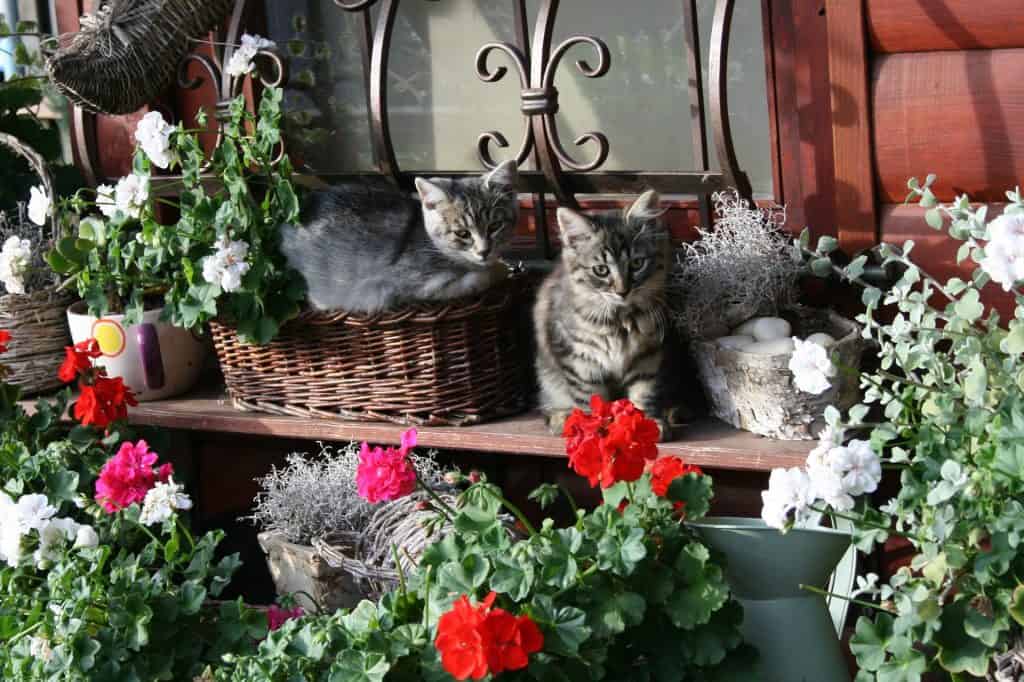
You see, we inherently know through feeling when a space is taken care of, cleaned, has great energy, treated with love, care, tenderness and kindness. The space speaks to us at a soul level and through our bones. We just know.
There were plenty more responses and I was astonished at how lengthy some of the text messages were — in other words, the question sparked something in people that they perhaps didn’t expect or maybe something they inherently knew but was never asked.
So, let’s return to that spiritual connection. If ancient spiritual traditions held sacred space in such high regard, it behooves us to look at the reasons why. Of course studies show that when we live in a cleaner and less cluttered home, we feel more at peace, centered and more organized. Clarity comes to us more easily. Other studies show a direct correlation to one’s physical health and longevity over time when a home is cleaner — this makes sense of course. Less dust, mold and other ‘unseen’ particles in the lungs that can make us sluggish and affect our overall bodily system equates to less fatigue, more energy and creative inspiration.

What’s fascinating is that in every quantum physics book I’ve read over the past couple of months, inspiration, imagination and creativity are directly connected to higher levels of consciousness, purity of thought and the ability to connect to deeper levels of psyche (the word that is used the most across authors).
What does quantum physics have to do with spirituality and the metaphysical world? It turns out quite a bit although the thought of comparing the two as if they’re complimentary or extensions of each other would make most traditional physicists cringe. Still today, despite the quantum leaps over the past few decades, very few would speak about the two in relation to each other in any respectable way. Same applies to Philosophy.
The truth is that both have to do with matter, energy and the connection to human psyche and intention at a micro and macro level. If we understand that everything is energy including the dark matter in the void we know very little about and all living things around us, then we’ll understand why a clean home has an energy field that so obviously differs from an energetic field of a dusty and/or cluttered space.
Like in so many of the scientific quantum experiments that don’t make sense — things happen in a participatory environment with large objects as they do with atoms, quarks, particles and waves — we mirror our environment and our environment mirrors us, impacting each other simply through our presence, intentions and thought patterns.

A brilliant analogy is depicted in this piece from Spirituality Health entitled “Clean Your House & Your Mind will Follow.”
From the Literal to the Metaphorical: related to physical cleaning, “we can learn to clean the more significant intangible dirt we all face. It is not pleasant to unearth and confront thorny issues at home or at work, yet they must be dealt with. Our approach to physical dirt trains us to bravely deal with non-physical dirt at every level.”
From the same article, they suggest that you approach cleaning as a truly meditative practice, and the importance of being present in the here-and-now when you do clean your home.
“Let go of the fretting over the past or grasping for the future. Live in the moment and address the tangible conversion from dirty to clean, mess to beauty, yuck to yum. Be fully present in the here and now, no matter how pleasant or unpleasant the experience may be. To get that job done we have to, as Ram Dass says, ‘Be Here Now’.”
We may not be able to make sense of why we feel better where feng shui principles have been applied to a space. And, we may not be able to make sense of why we feel better in a space that has been freshly cleaned. But the truth is: we don’t need to – we simply need to trust its importance to our overall well-being.
And, if keeping the sacred space clean where you live isn’t part of your routine, perhaps try it for a few months and see how you feel?
Like the ancient masters across traditions knew, purification of one’s body, mind and soul is keeping things in balance and harmony, so too is keeping the sacred space in which we live, work and play in balance and harmony as well. If you don’t take care of your body, it will deteriorate and if you don’t take care of your space where you live, it will affect you emotionally and even physically over time as so many reports and research have suggested.
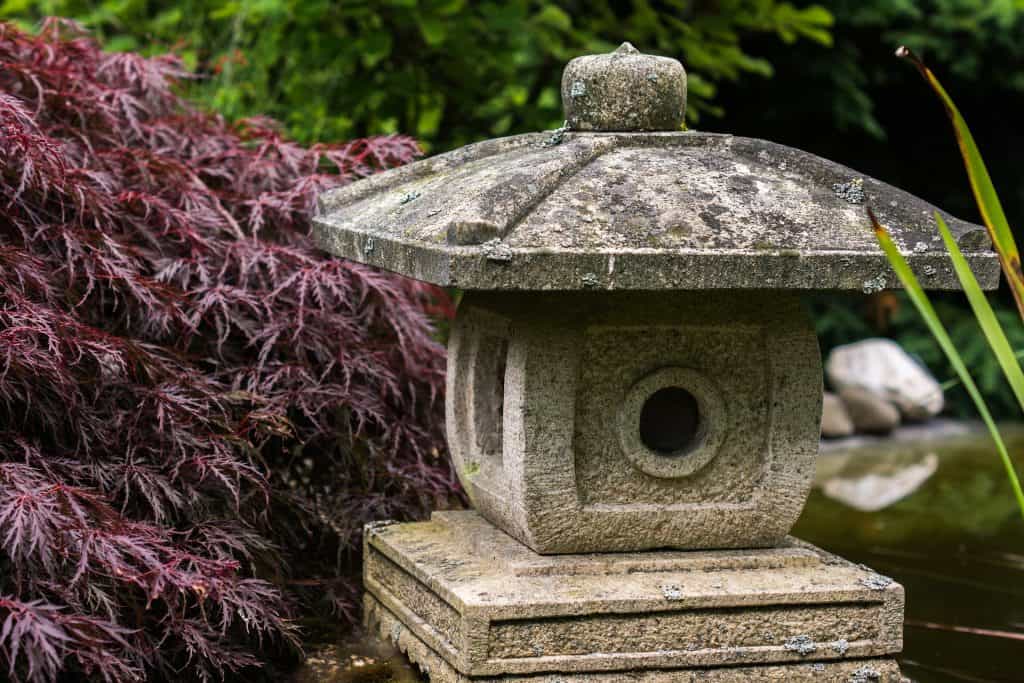
Energetically, our bodies inherently know (and appreciate) a space with positive and purified energy. It’s like talking to your trees and plants — they’re alive and part of the whole as we are so they will resonate with loving energy whether that be in the form of music or a gentle voice of appreciation. Our homes have energy too, which we are connected to in very real ways and ‘it’ to us.
As Working with Oneness points out:
“The art of cleaning is a simple spiritual activity that is often overlooked. The image of the monk sweeping the courtyard has a deep significance, because without the practice of cleaning there can be no empty space, no space for a deep communion with the sacred. Outer and inner cleaning belong to the foundation of spiritual practice, and as the monk’s broom touches the ground, it has a particular relationship to the Earth. We need to create a sacred space in order to live in relationship to the sacred within ourselves and within creation.”
Simply put: beautifully said, yes?
Those of you who have done a lot of spiritual reading may have come across the “energy” known as Melchizedek. Older references cite that “a Melchizedek” was a king of Salem and priest of Elyon, as depicted in the Bible’s Book of Genesis. More modern stories have Melchizedek associated with sacred geometry and the “order of things.” Either way you slice it, whether Melchizedek is your “order of things” or if you have another analogy that works for you, there is beauty and structure to sacred space as well as the Universe as a whole.
We feel in harmony when things are energetically aligned. The sacred space where we live is no different. Most of us have an order to how we do things even if we don’t realize it. When I began my personal development path in my early twenties, I came across the statement “How you do A THING is how you do EVERYTHING”. I have seen this to be true in observing people both at work and in social settings for years.
Physicists since the turn of the last century — Einstein included — have held a quest to truly understand not just the meaning to matter but how “the so called physical” intrinsically tells us how the Universe works. Is there a divine order to it?
In fact, it’s even been dubbed “a theory of everything or ToE for short”, which is seen as the final or ultimate theory if you will….an “all-encompassing, coherent framework of physics that explains and links together all physical aspects of the Universe.”
Regardless of whether you look at this connection from a purely scientific thread, a metaphysical one, or perhaps a combination of both, energetically we can feel a clean space. I remember asking a friend of mine who was once lead designer for The New Yorker what his definition of “great design and space” was and he pondered for a moment and said: “you know when it’s not there and you feel when it is.”
I’ll leave you with this simple but elegant poem. Happy cleaning, happy cleansing and happy purifying!
Bamboo shadows sweep the stairs,
But no dust is stirred.
Moonlight penetrates the depths of the pool,
But no trace is left in the water.
Nyogen Senzaki